#wallachian history
Explore tagged Tumblr posts
Text

A question that doesn't come up often enough: Where's the rest of Trevor's family?
We know the entire Belmont line was almost completely annihilated in a mob, but the series is pretty vague on how many people were actually living in the house. With a high mortality of the medieval period, families were often big and with an occupation as dangerous as hunting monsters, the Belmonts were probably no different. This was very much a 'survival of the fittest' and 'heir and plenty of spares' mentality.
Trevor lost his family at twelve, so it's very unlikely he was the only sibling. But even in the event his parents were extremely unfortunate and he was their only surviving child, the multiple siblings theory still applies to the previous generations.
So his immediate family was killed. What about the extended family?

In Lament of Innocence, Leon Belmont was a French baron, but he gave up his land and titles to rescue Sara. Following the storyline of the Netflix series, he then chased Dracula east and neither the games nor series ever mention what became of him other than the fact he fathered the entire bloodline.
Based on the games, it would be safe to assume the Belmonts are not part of the aristocracy, but as far as the series goes, they are mentioned as one of Wallachia's 'great houses' in the first couple episodes. They're not unknown to the Wallachian people. Plus, the reigning Prince of Wallachia did have the power to invest anyone he chose with a noble title. The real Vlad the Impaler actually made use of this power by elevating members of the lower classes, effectively ensuring their loyalty through gratitude. (Because if he was overthrown, things weren't going to go well for the people who benefited from his rise to power.)
So it's not impossible that somewhere in the 400 years between Leon and Trevor, some Belmont won the favor of Wallachia's monarch and was rewarded with a boyar lord's title.
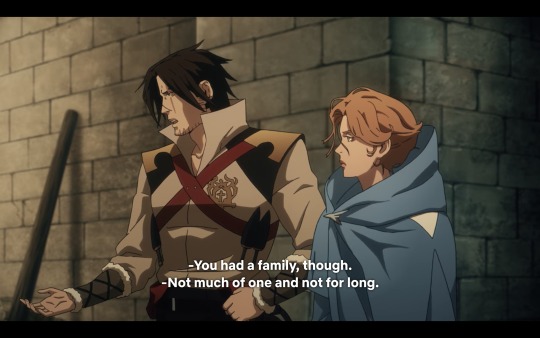
'Not much of a family and not for long' seems to indicate the line was already pretty diminished before the mob attacked.
Trevor only mentions his family a handful of times throughout the four seasons, and the only specific members that come up are his parents with the reference to his mother's books and the story of how his father had once gotten into a fight with a Speaker.
The only other time his parents come up is in Season 2 when Sypha asks if they were magicians, to which he answers no, but they knew a lot about magic. At the very least, this shows both of his parents were alive long enough for him to remember them. Otherwise, the story about the fight with the Speaker could have easily been told to him by another relative that had been looking after him while the books Trevor mentions that belonged to his mother could have just been part of the family's collection after she was long gone.
With some historical context (provided we adhere to accuracy,) this actually gives some insight to Trevor's childhood. He would have known his mother very well. Unlike many other European countries where the nobility left childrearing to a nurse and other staff, the education of a boyar's son in Wallachia was actually left to the women of the household. His mother would have likely overseen every part of his upbringing that wasn't physical combat training, which would have been his father's domain.
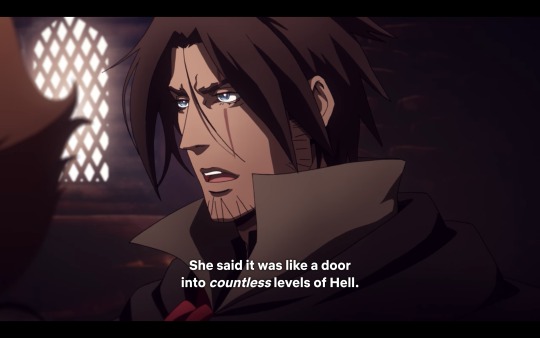
Another possibility worth exploring is his mother was the Belmont and his father was the one who married into the family. An unusual if not unheard of dynamic for the times, but the series does subtly imply the women of the family were as much of hunters as the men when Trevor talks about how only one member of his family encountered the Infinite Corridor. It's possible they could have adopted other more non-traditional roles for the times.
This also accounts for his complete lack of surprise in Episode 3 when 'the Elder's grandchild' turns out to be a granddaughter and again in Episode 4 when Sypha reveals herself as a mage.
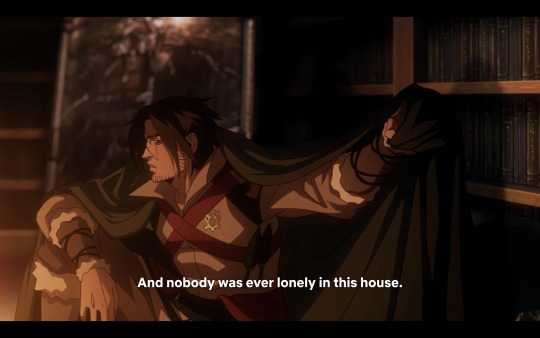
So we've established both of Trevor's parents were alive and well for a significant part of his early life. On to the extended family.
Unless the Belmonts were practicing Targaryen levels of incest (although marrying one's cousin was an accepted practice in this time,) Trevor should have had other relatives to rely on. Assuming the family had a traditional dynamic and his mother did indeed marry into the Belmont line, and since aristocrats generally married other aristocrats, her father would have been one of the boyar lords of the region. The same applies if his father had sisters who married into other families.
Given the primary goal of marriage in this time period was less romantic and more in the interest of forming alliances with other families for political or financial reasons, there could also be a wider family network among the nobility at play.
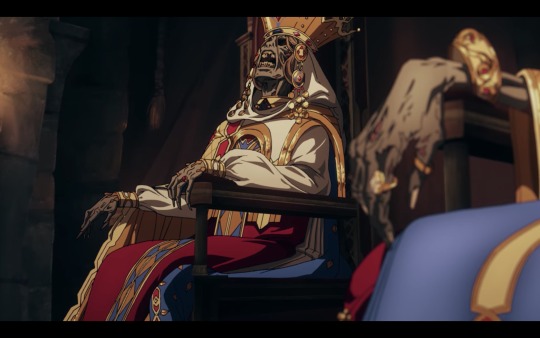
Side note: There's a small possibility he's distantly related to one or both of these two.
...
So what happened to those other relatives?
Personally, I think the answer to this question might play into the cynicism and bitterness of Trevor's character in general. If we explore the scenario that he did seek help from his mother's family, people who had no ties to the Belmonts other than the fact their sister/daughter married into the family, with the self-serving atmosphere of the Wallachian aristocracy at the time, I can imagine him being met with a cold reception.
And sadly, this would be an all too realistic situation for the times. As stated above, the boyars were corrupt. There wasn’t a clear hierarchy among the nobility (That is, Wallachia did not have the equivalent of dukes, earls, viscounts, etc.) so power was determined by wealth or land-owning. This rivalry for power went all the way to the top; Wallachia's throne changed hands once every couple years as the Dănești and Drăculești branches of the reigning family relentlessly fought over it.
In this minefield of political intrigue, the only surviving member of an otherwise shattered bloodline, especially a twelve year old excommunicate, would not have been of much use in the eyes of the nobility. With the Belmonts disgraced with heresy charges, neither branches of the reigning family would have been interested in their support and probably would have wanted to distance themselves from an alliance that could potentially damage their own reputation.
A public rejection from the Prince would have rebounded throughout the region and put the final nail in the coffin of what the Church started. None of the boyars would have been interested in helping Trevor, distant family or not. On the other hand, helping their orphaned and disgraced nephew/grandson is the Christian thing to do, but since Trevor and his murdered family are now enemies of the Church and out of favor with Wallachia's monarch, that 'help' might've extended only as far as, "We're deeply sorry for your circumstances. Here's some money, now get out."
So Trevor was born into one of the highest and most privileged classes in the region and is the product of literally generations of a family that has had two goals since Leon: protecting the world from Dracula and the destruction of Dracula. The night of the mob would have completely shattered a mentality he'd had since he was born. Throw that on top of that the trauma of losing one’s home and entire immediate family in a single night and then being vilified by both the people his family had protected and the wider circle of his extended family.
That is a brutal shift in world views for a twelve year old to handle, so it's easy to see why the series opens with him already burned up the anger and the grief over what happened and all that’s left for him is the aimless wandering, drinking, and getting into fights.

In all, this statement really summed up the beginning of his character arc perfectly.
#castlevania#trevor belmont#belmont family#sypha belnades#character analysis#castlevania headcanons#castlevania targoviste#character development#speakers#medieval wallachia#wallachian social classes#medieval romania#medieval history#medieval europe#wallachian politics#game of thrones reference
136 notes
·
View notes
Text
/ What are the chances that a bat god would fall in love with (insert ur muses' name)-
#WHAT are the chances that the last emperor of the Byzantine empire would fall for (insert ur muses' name)#what are the chances that the god of the night sky; hurricanes; conflict; obsidian; sacrifice woums fall in love with (insert ur muse name)#what are the chances that one of the best warriors during the kurukshetra war would fall in love wit-#what are the chances that the king of ithaca who fought on the trojan war + embarked on a journey that seemed to have no end would#fall in love with (insert ur muses' name)#what are the chances that a bat god and (ur muses' title) would fall in love-#what are the chances that a man considered to be one of the most important rullers in wallachian history would fall in love with u rn-#I COULD GO LIKE THIS ENDLESSLY#im missing more but#basically; i wanna write pinning and romance and and-#im putting all of them on the table 😳
21 notes
·
View notes
Note
I was reading a collection of Japanese legends and discovered that their author, Lafcadio Hearn, was part Greek by mother and was born in Greece, although he didn't remain there and was raised mostly in Ireland. At some point, he moved to Japan and married Koizumi Setsuko, a Japanese woman. He wrote books inspired by Japanese folklore with the help of his wife, who is said to have been passionate about legends and who apparently helped him both with writing in Japanese and with information about legends she knew. When he became a Japanese citizen, he took her surname and his Japanese name was Yakumo Koizumi. Both of his marriages were controversial by the standards of the time, as his first wife Alethea Foley was a Black American woman and this violated Ohio's anti-miscegenation law at the time and his second wife Koizumi Setsuko was Japanese and at the time Japan was also not open-minded about marriage with foreigners. Apparently, he had some importance in popularizing Japanese stories in Europe and the Americas. My question is: is he known in Greece? It's said that he had a great interest in Greek culture. I admit I hadn't heard of him before reading this collection, so I was curious if he was known in his mother's country. His mother, Rosa Cassimati, at one point annulled her marriage to his father and returned to Greece, as she was suffering from xenophobia in Ireland and missed home.
Incidentally, I found out about him recently in some article about little known influential Greeks. As this already implies, no he is not known in Greece. The attempts to make him known to the wide public, which I have noticed, are very recent and scarce. I have made a mental note to read his works, it will be so refreshing to read a Greek exploring a foreign culture instead of the opposite all the time. (Semi related fun fact: A LOT of the information we have about Wallachian Vlad Tepes, commonly known as Dracula, and especially his father and grandfather, come from his contemporary Greek historian named Laónikos Chalkokondýles. Does this have anything to do with Lafcadio? Well no, except the similarity that the vast majority of Greeks do not know him and I did not either until I made the peculiar decision to read a Romanian historian’s book about Dracula who was citing Chalkokondyles all the time!) Unfortunately Greeks nowadays only appreciate the popularisedTM by the West parts of our history, with few exceptions. A tragedy to be honest with you.
To turn back to him, can we appreciate how the Cassimatis mindset was so ahead of its time?
Lafcadio went against the law to marry a Black American.
He fully embraced his second wife’s culture and adjusted completely to it, to not make their marriage and her situation amongst fellow Japanese people difficult.
He took her surname, so non-typical for a man of his time.
His mom was not having it with the racism, said fook this, dumped the dad and returned to Greece. (Okay basically the marriage was awful in general and she couldn’t tolerate it so much she had to leave the children behind - the children were treated well by the father’s family)
There are museums both in Greece, in Lefkada island (his birthplace - hence his name) and in Japan about him. The town of Lefkada and Matsue city in Japan have become sister cities. So he is well known on an academic and statutory level in Greece but people on average do not know about him and his interesting life, no.

37 notes
·
View notes
Text
CD SHORTS: What did Bram Stoker know about Vlad the Impaler?
Is there any Romanian who dislikes the country's vampire brand? Any connection to Vlad the Impaler? Hence the question: what did Bram Stoker, the Irish writer of the novel "Dracula" that started Romania's vampirism, actually know about the real Wallachian voivode? The answer is hardly surprising: Stoker knew next to nothing about Țepeș. The Irishman made a few notes (preserved today in his personal archive) from the book by William Wilkinson, a former British ambassador to the Romanian Lands. Wilkinson had written a short history of the Romanians in 1820, in which only one page was dedicated to Țepeș. There it was mentioned that he fought against the Ottomans and that his name means "dragon" in Romanian. This last detail fascinated Stoker! He moved the action of the novel from Steiermark to Transylvania and changed the name of the vampire count to Dracula. Stoker knew absolutely nothing about the impalements, the reputation of a cruel tyrant, or the medieval German stories about "Dracula", although these would have increased the dramatic substance and authenticity of his main character.

#romania#history#vlad the impaler#wallachia#corpus draculianum#dracula#vlad tepes#vlad dracula#youtube#bra#bran castle#bram stoker#vampirism#dracula daily#cd shorts
25 notes
·
View notes
Text
Costuming Strahd: Part 1 An "I thought too hard about this" adventure.
I recently picked up some fabric for Strahd (because you know I gotta dress up when my players eventually come to dinner).

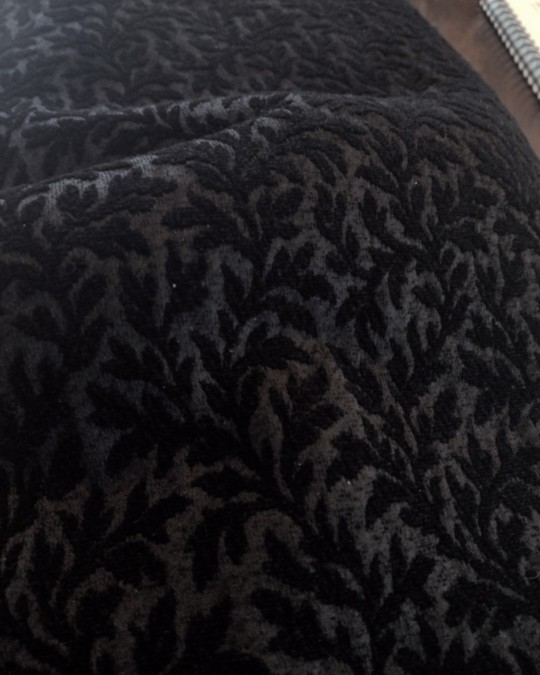
A "fine black linen" for the shirt (from here if you want to grab some for yourself), and a black jacquard chenille (kind of a mid-weight upholstery fabric) for a classy vest.
I started doing some visual research on traditional clothing in Slavic and Southeastern European regions, hungrily compiling whatever I could find to build some pattern recognition.
Having a little bit of trouble reconciling traditional peasant garb with "but what would nobility wear" and "what year is it", plus the obvious influence of Dracula and his early cinematic adaptations on descriptions of Strahd von Zarovich (which are decidedly Western), and the need to remind myself that I am building a fantasy costume not some historical reenactment.


1937 print of a Wallachian peasant vs. a portrait of Vlad Țepeș noted 1466
The vague description from I, Strahd: The War Against Azalin gives me a neat little list of his layers: "cloak, outer coat, embroidered vest, and . . . a very fine black linen shirt."
The "outer coat" threw me. I suppose it shouldn't have. But it didn't quite mesh with the Ottoman influences in Vlad Țepeș portraits nor the stout vest and almost oversized coat ensembles I'd been looking at in peasant images from Romania and Hungary. Instead, that kind of layering really read Western Europe to me, so I was shunted directly back to Christopher Lee's portrayal of Dracula (in which his costume really is black-on-black-on-black, apart from the barest hint of a white shirt beneath the squarely Victorian suit, which easily consists of both a vest and jacket and, in this case, a cape).
Side note: Nowhere have I (yet) found mention of any sort of necktie. Just the Bela Lugosi style crest (but on a gold chain, not a ribbon).
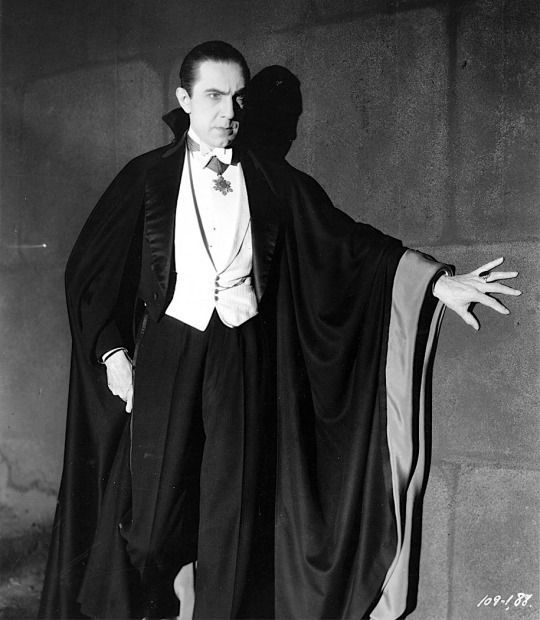

There's just something about that 1930s white tie, folks. Mm.
Anyway, I figured it was safe enough to start with Strahd's shirt. Well... but, herein lies still the same conundrums: shirts aren't all the same spanning eras and regions. I did stumble on this, though:
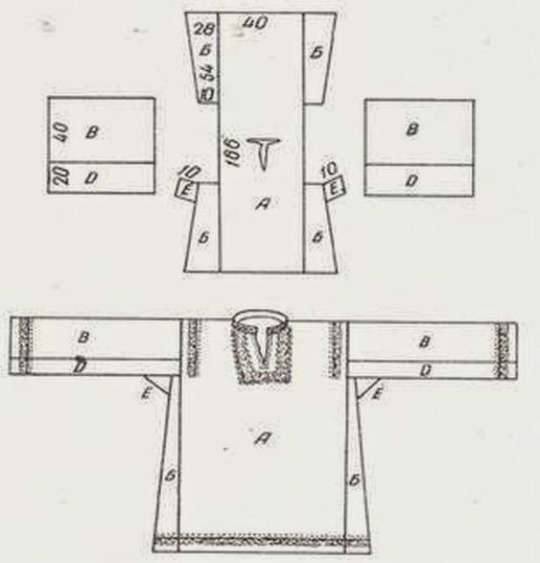
I love me a pattern.
What I like about this in particular is that it's structured in a way that makes me believe Strahd was inspired by a man who lived in the 1400s. These sort of blocky, pieced shapes were how shirts were commonly built throughout much of history, with various amounts of gathering and whatnot, so it could be pretty versatile in terms of "what year is it".
I like the embroidery on the neck, cuffs, and over the shoulders. And I like that the split in the neckline is centered. I've seen examples with the split at the side of the embroidery panel that are really intriguing, but while a few have been noted as Ukrainian or Polish, most of the examples I've seen have been Russian, and I'm trying to avoid anything overtly Russian. (Russian garb is yummy, but it's not Barovian.)



The lighting on that third one is either ominous, suggestive, or both.
What I don't like is the open sleeve ends. There are certainly worse offenders (there are some HUGE open sleeves in some of the folk ensembles, like, unconscionably long and billowy), but even this kind of straight sleeve doesn't feel... I don't know... organized enough for Strahd.
I have a Viking style shirt with straight open sleeves like this, and it bothers me to no end. The material over the thin part of my forearms and wrists is floppy. It crumples and rides up (maybe they're just too big overall, but that's a risk to consider). I usually just roll them up to my elbows to have done with it, but that's a move for casual wear. I could see Alek Gwylim sporting open sleeves, but not Strahd. Strahd needs cuffs. Or if not cuffs, the kind of sleeve that narrows tight around the forearm and probably has at least a dozen buttons running up the length of it... but that's hardly practical, either, is it? Strahd treads that infuriating middle ground somewhere between comfortable and elaborate.
So anyway, I'm probably going to enlarge the sleeves. Not a lot; just enough to get a little bit of that "poet shirt" gathering on the shoulder and allow some extra movement in the elbow. And it's going to have cuffs that button around the wrist. Turning it into something a little more suggestive of the Renaissance (though I'm sure as hell not adding ruffles; I'm sure Strahd would think them frivolous).
Side note: Cuffed sleeves are not unheard of in folk garb from Romania and surrounding areas, but it still felt like a very deliberate choice to make. There's certainly a noticeable trend of open-sleeve styles, especially in Transylvania, if I understand correctly.
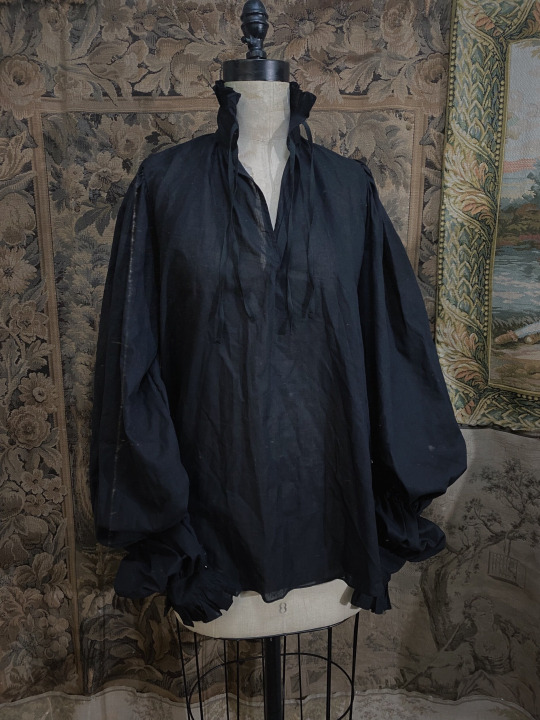

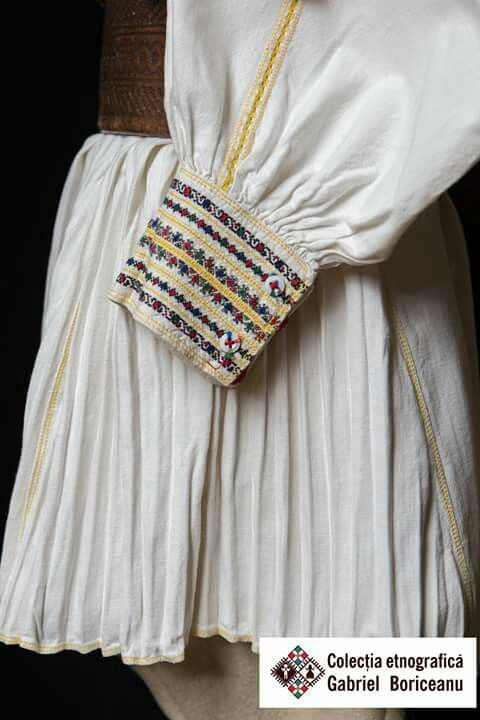
That first image is from I Do Declare. Great stuff.
Ultimately, the slightly tucked, cuffed sleeve should also bleed well enough into late-1800s suit territory, at least in spirit. The sleeves should have the approximate volume as (or perhaps a little more than) a modern button-down shirt.
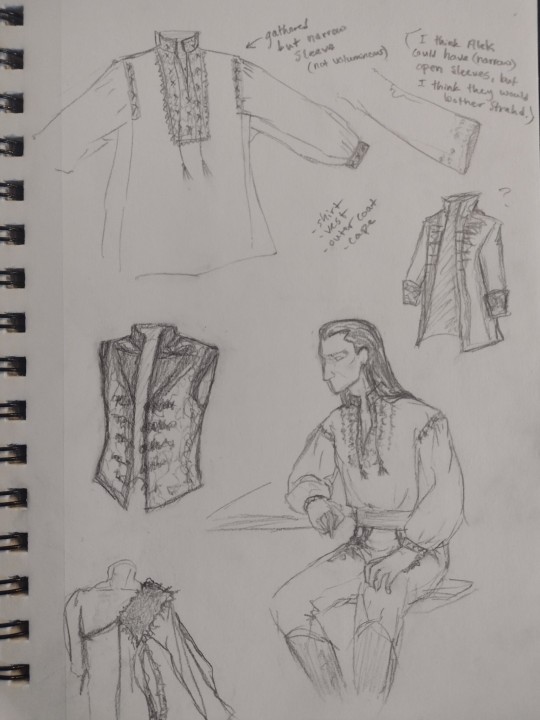
Little concept sketches.
Building up from the body, the vest is the next most important thing (aside from pants, but I'm just looking at his torso for the moment; you can fake good pants, especially at the table).
Whatever happens, I knew the vest should be at least these two things: black, and embroidered. Why not blackwork on black fabric? And, since I've picked out a jacquard fabric that already has some texture to it, let's just keep piling on that subtle intrigue. That's right: get up close and personal, look at that mesmerizing detail... lol.
I do not have an actual plan for any of the embroidery yet. That's a problem for future me. (Good luck, sucker.) What I would like to do, vaguely, is take some of the traditional/folk embroidery from that southeastern region and combine it with more western Victorian elements. Haphazardly span worlds to mimick the elvolving lore.
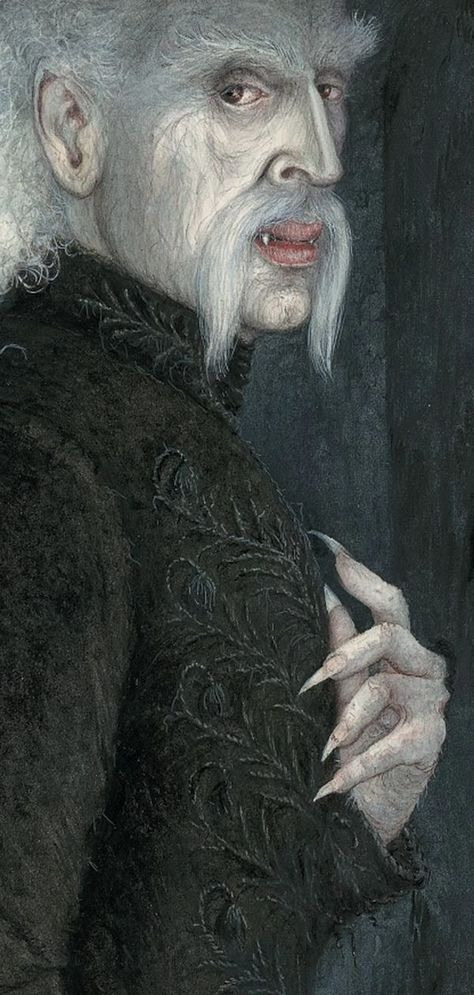

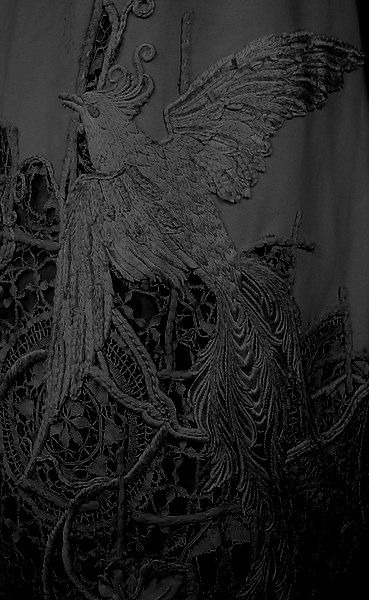
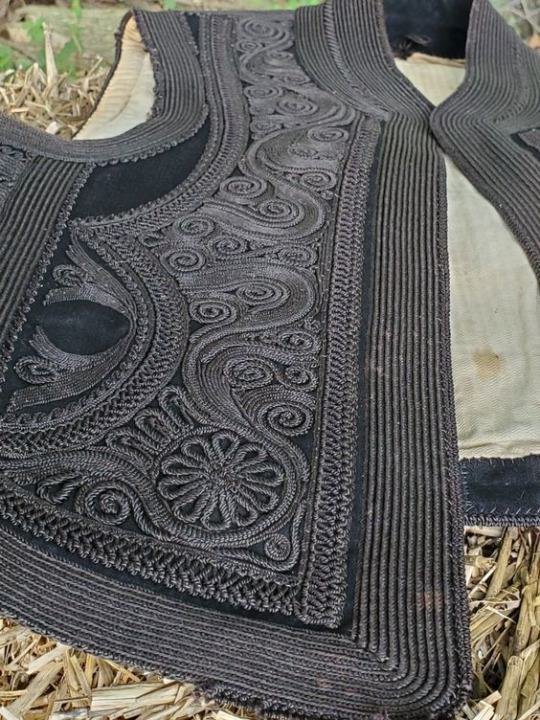

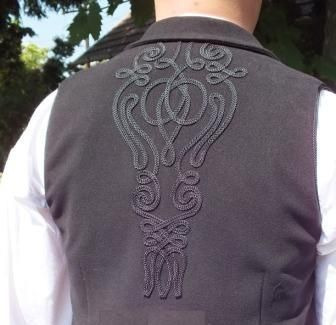
Soutache, anyone?
The style of the vest I sketched out is based on the below examples of traditional Romanian outfits (from what region, I have no idea). The nubby little lapels reminded me of late Victorian waistcoats (which button up rather higher on the breast than modern suits), but with the added fun of a standing collar. That thick black embellishment also caught my eye, of course.
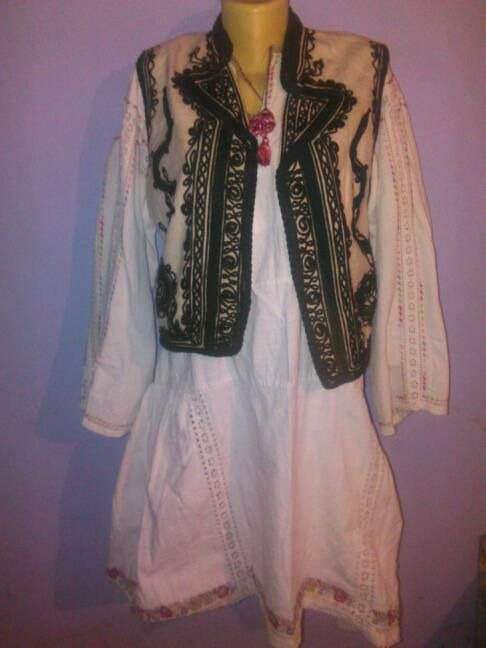
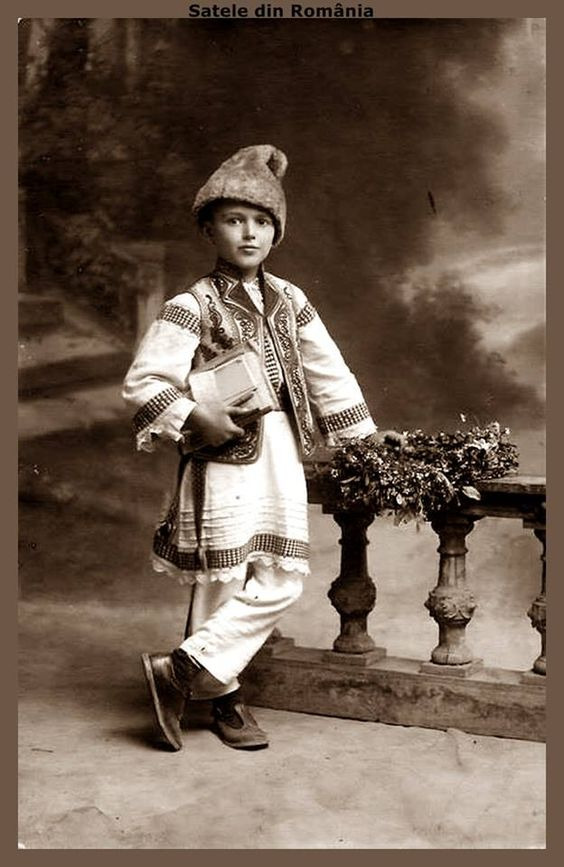
Look at that dapper little guy.
I would like the vest to be more fitted, though, rather than the boxy, open-front (and often sheepskin or fur-lined) style of traditional peasant dress.
Along a similar vein as "the man needs cuffed sleeves", having a more tailored vest seems practical and organized. Crisp might be the word I was looking for. And he's a lord, he can afford the extra effort. A fitted waistcoat would also play along with the little fantasy Renaissance lean and nods to Victorian fashion.


Strahd said trunk hose were a thing of the past, but made no mention of doublets one way or the other.
That's it for now. I was definitely just going to do a quick intro this morning, but here it is, evening again. Joy of joys. This is my work.
. . .
[Next - Costuming Strahd: Art Addendum]
#lamour dms cos#costuming barovia#strahd von zarovich#inspired by dracula#curse of strahd#strahd cosplay#barovia#ravenloft#fashion history#folk costume#costume things#dear god am i actually blogging
53 notes
·
View notes
Text
IWTV S2 Ep1 Musings - Cezare Romulo: History through Visual Context in Ploiești, Romania (Pt2)
I am on the hunt for any and all information on AMC's OCs, The Vampire Daciana, and the Vampire Cezare Romulo.
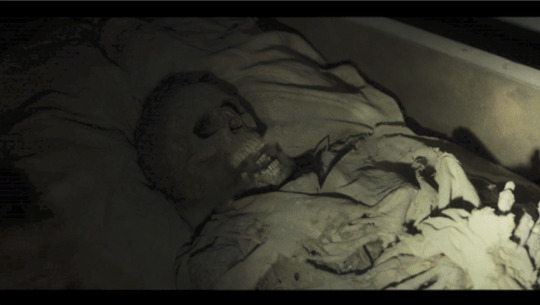
In Part 1, I pointed out that Daciana was likely AMC's nod paying homage to the Dacians (aka Geto-Dacians or Daci, as the Greco-Romans knew them), the ancient Romanians of c. 10th century BC - 7th century AD, in the Transylvanian/Wallachian regions of the Carpathian Mountains.
In AR's TVC, vampires tend to reflect the era they lived/died in, preferring to wear their traditional clothes & surround themselves with antiques from their time period--like grave goods for the dead. However, from what I've found, there was nothing about Daciana's clothes/home indicating that she was an ancient Dacian (X).
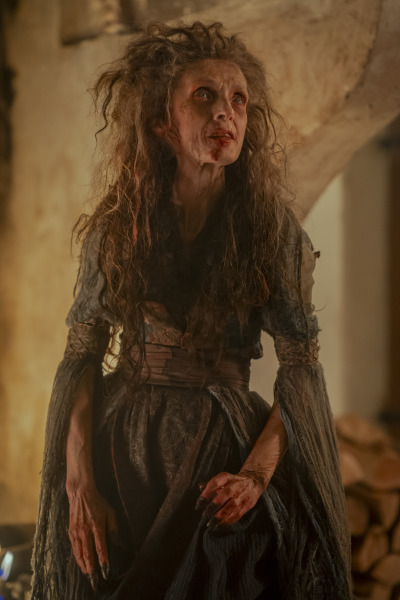
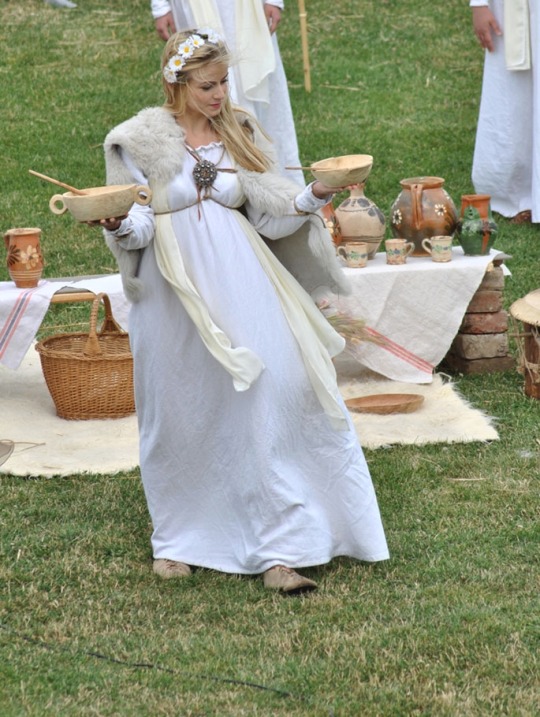

(Granted, if she IS that old, then that definitely increases her odds of being an "Old God" that got caught in the Great Burning.... 👀)
Regardless, I wanna turn my attention to Cezare Romulo, cuz while I'm tentatively ruling out Daciana as being Dacian, I haven't dug into The Vampire Cezare yet. So here goes nothing!

Nomenclature
First thing that stood out to me is his name. Cezare's obvs Caesar, but I wonder if that's his name, or his title (like how the Latin caesar became kaiser in German & tsar in Russian).

In Oltenia (Wallachia) there are archaeological remains of a Roman-Dacian fort called Romula, dated to the 2nd century AD. I couldn't find much about it, so we'll just put a pin in that. Something way cooler is that according to Google Translate, Romulo means Romulus, in both Romanian & Italian. That's hella interesting, cuz Romulus was the founder of Rome (8th century BC), twin brother of Remus, whom he killed Cain vs Abel style to be the ruler. In some versions, Romulus "died" under VERY mysterious circumstances:
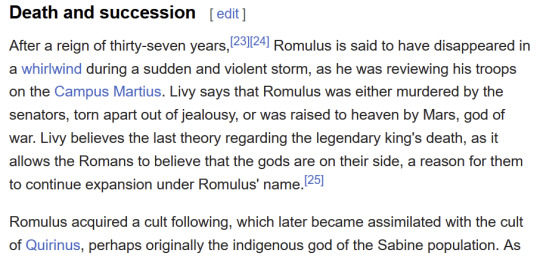
So for AMC's OC vampire to be named after two Romans (Caesar & Romulus) who were both incredibly violent & bloodthirsty rulers says a lot. Especially considering with how Daciana described him:
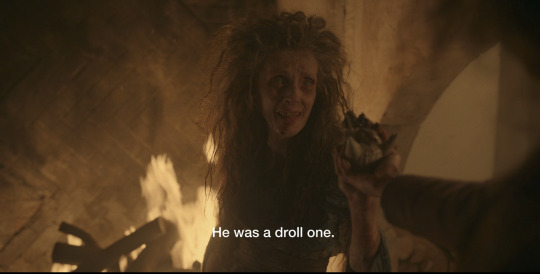

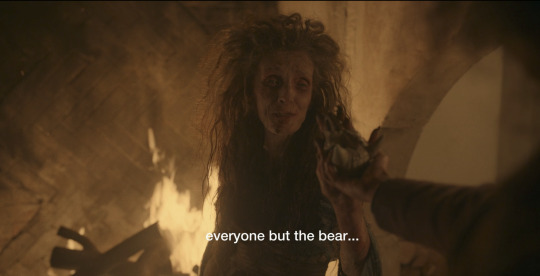
The Castle: Bears & Wolves (Totems & Crests)
Cezare killed a whole circus troupe traveling through Transylvania (Sibiu), and only spared their bear. I wondered why this was so noteworthy--vampires will kill anyone for food (or sport), esp. if they don't follow the creed about only killing Evil Doers (as Cezare obvs. didn't--unless he knew something about that troupe we don't...! 👀 Clowns ARE evil, after all 💀). Vamps don't tend to kill animals, unless they need to defend themselves--but aren't circus bears kept in cages or something? So why would it matter?
So I reckon that Daciana's point was actually that Cezare LIKED the bear, and probably KEPT it, as his pet.
Cuz look at his castle: the joint's filled with taxidermy.
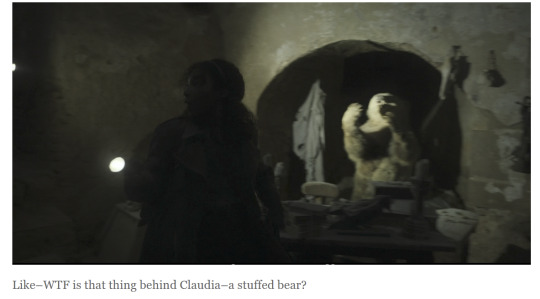

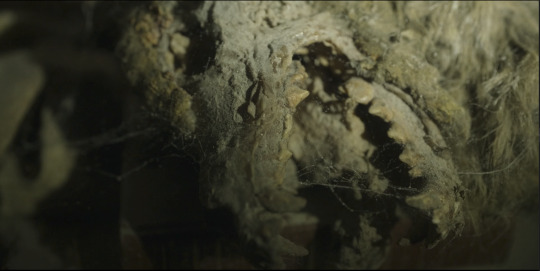
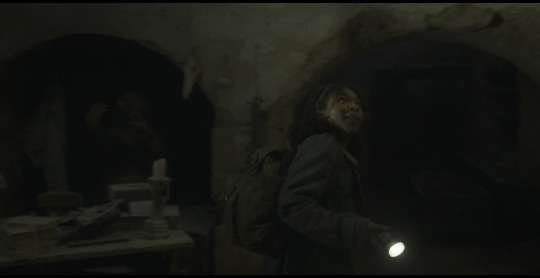
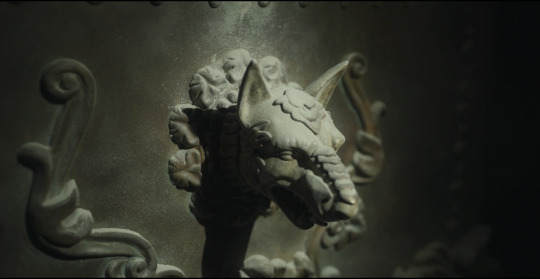
I think some of these animals are bears and/or wolves (Romulus & Remus were raised by wolves in the woods....). And that tracks with what is known about the main Dacian animal, the wolf (or "Draco"/dragon), (X X X).
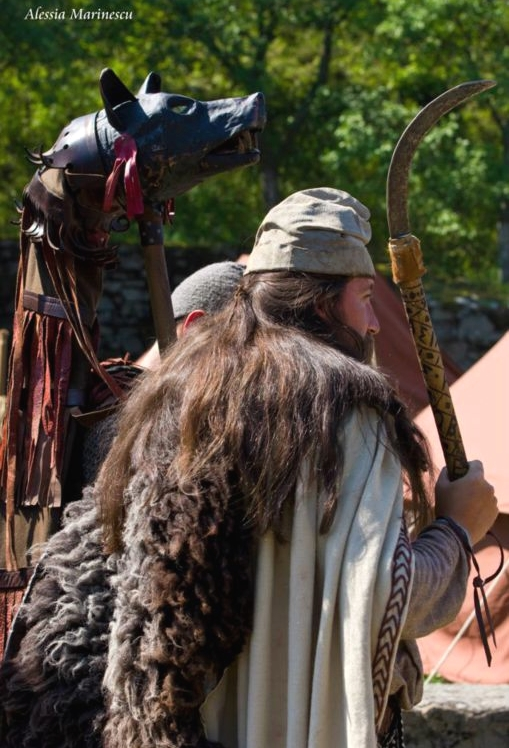

Sava, Cipriana. "Cultural heritage tourism--Dacian fortresses in the Orăştie area, Romania." MEFkon 2020 INNOVATION AS AN INITIATOR OF THE DEVELOPMENT. (2020): 290-311.

Strechie, Mădălina. "The Dacians, the Wolf Warriors." In International Conference Knowledge-Based Organization, vol. 23, no. 2, pp. 367-373. 2017.
(ISTG when is AMC bringing AR's Wolf Gift books into the Immortals Universe--I need my werewolves already, gosh darnit!)
Cezare clearly felt a strong affinity for animals, especially bears.
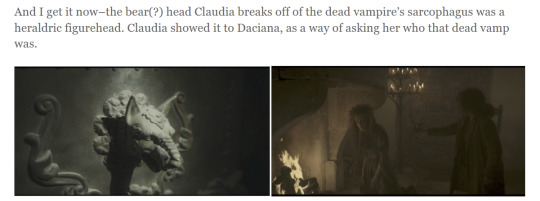
Which isn't surprising, considering the life-death-rebirth symbolism of the bear in Romanian traditions like the Ursului (bear dances).

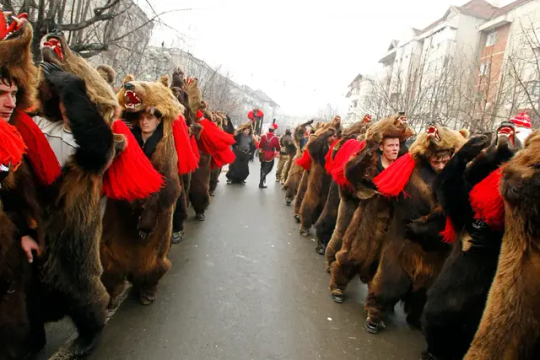
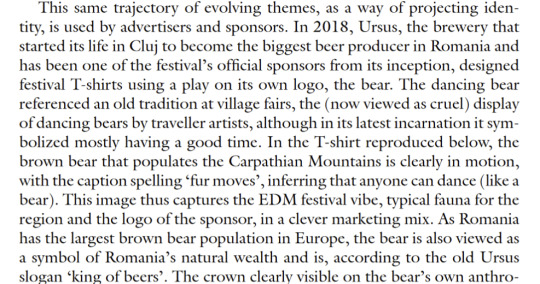
Trandafoiu, Ruxandra. "A Tale of Two (or# EverMore) Festivals: Electronic Music in a Transylvanian Town." Eastern European Popular Music in a Transnational Context: Beyond the Borders (2019): 213-237.
The Castle: Architecture
As for Cezare's castle ruins, I have no idea what's going on.

The most interesting thing was Cezare's final resting place in this catacomb-like structure, lying in a stone sarcophagus.
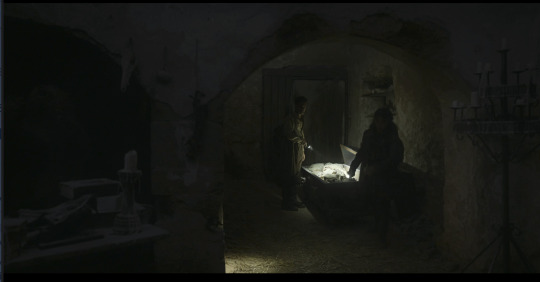
Like, there are Roman-era burials found across Romania, but Cezare having a STONE sarcophagus is interesting, cuz apparently Transylvania's Daco-Roman inhumations are more often brick:

As stone sarcophagi only became more popular around the 3rd-4th century AD
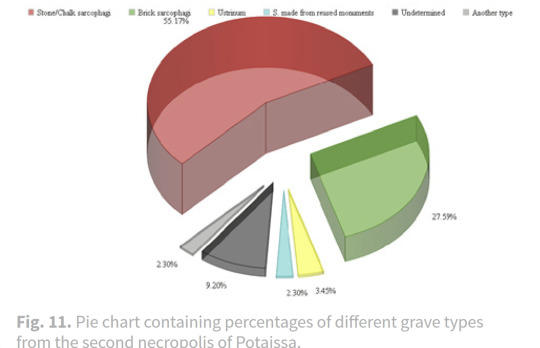
Cocis, Horatiu. "Some remarks on the Roman necropolises of Potaissa." Journal of Ancient History and Archaeology 2, no. 2 (2015).
Before largely falling out of favor/use by the 5th-6th century AD, except for clergy & royalty:

Maggio, Ariane. "Burial Practices in Europe." Encyclopedia of Global Archaeology (2018): 1-6.
So, does this possibly give us a date for him, approx 2nd-6th century AD? But how long was it until he died? (HOW did he even die?)
What about the rest of his castle? Like, the place is an utter ruin, and there's barely anything left of that dark AF exterior that I can use.

Is this a studio set, or was it filmed on location somewhere? IDFK. There's hundreds of Romanian archaeological sites--let alone Daco-Roman ones--it kinda reminds me of davas (fortresses/strongholds), (X X), if not for the masonry being different.
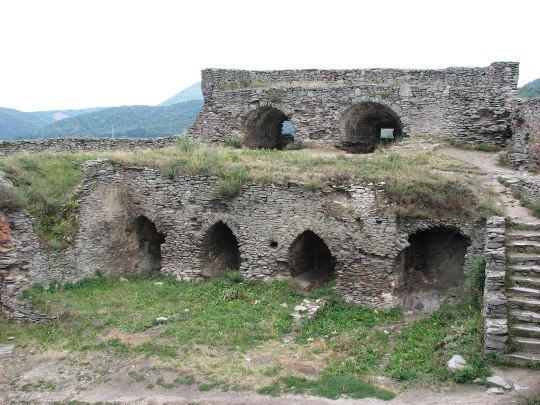
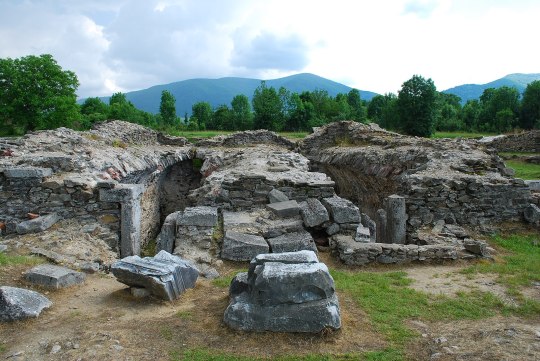
So yeah, I have no frikkin clue, y'all; this is all I've got, LOL. ¯\_(ツ)_/¯
Results? Inconclusive! Again! 😂😭
I don't know if AMC was deliberately implying that Cezare Romulo (or Daciana) had anything to do with the ancient Daco-Romans...but it's interesting to think about!
#interview with the vampire#the vampire daciana#iwtv tvc metas#werewolves#ancient rome#medieval europe#read a dang history book
33 notes
·
View notes
Text
@pdfhoarder tagged me in a little chain questionnaire so I figured I would pass it along! Feel free to ignore if I tagged you, and feel free to join in if I didn't!
Last song you heard?
Slightly All The Time - Soft Machine (1973) Third is one of my favorite albums of all time, soft machine opened my eyes to how sick long jazz instrumentals can be. I've memorized every note but still find myself listening to it whenever I want to vibe out
Favorite color?
Brown, like milk chocolate brown, like tree bark brown, like good soil brown, like leather boots brown, like bronze brown, like a real nice brown brown, like a brown bear brown brown. Followed closely by forest green, which was my original favorite color since I was a kid.
Last book you read?
Epic Tomatoes by Craig LeHoullier, 'The NC Tomato Man' credited with trialing over 1,200 tomato varieties and introducing more than 100 to market.
I bought it a long time at Ed McKay's Used Books and More but now that it's seed starting time I cracked it open to look at more than just the pictures. Not a whole lot of practical growing advice that I hadn't absorbed elsewhere over the last few years, but loads of history on tomato varieties and really beautiful pictures throughout.
Last movie you saw?
Nosferatu, on Boxing Day. I loved the vampire, especially the voice. when it was booming around the castle in his opening scenes it was so menacing, i loved it. people liked to clown on his little outfit and moustache but I loved how it made him look like an actual wallachian noble lost to time. deserves the oscar nods in all the production categories but kinda stupid that they didn't even nominate Eggers for best director. it's obviously his vision that brings everything together since every one of his previous movies has the same dedication and precision. VVitch > Lighthouse > Nosferatu, but that's just because the story is a hundred years old and I know how it ends. they're all fantastic.
Last TV show you watched?
Severance S2E2, it just came out this morning! Love it, my favorite tv series since all the 'prestige television' shows ended, waiting all these years for it to come back was agonizing but it's finally here and hasn't dropped in quality so far, so I'm still super excited every week. Sweet, savory, or spicy?
I love sweet pastries more than any other food genre in the world. Savory is a close second place, and my stomach doesn't always agree with the amount of sweet foods I'm eating, but where would I be without sweetness?
Last Google search?
"nvidia shield losing hdmi connection" from trying to watch the new episode of severance 🙃
Current obsession?
my little orange cat sleeping on my chest and my little brown cat who was sleeping on my legs
What are you looking forward to?
the growing season to start already! the last few years haven't been nearly as cold and dead as this year, i'm really itching to get back out there. I have lots of woodchip shoveling for the path to do and I need another 12 yards of compost for the other half of the raised beds that needs shoveling as well, but it's far too cold to bother with any of that yet. I'm going to be much more restrained and planned this year, limiting the number of indeterminate tomatoes and vining crops I have so that I don't have so much to clean up constantly. I'm also going to be managing lots of rosebushes and citrus and cut flowers and other plants that I've never really interacted with before! the vegetables will be regimented and standardized, but my experimental crops are going to be full of new challenges to deal with. one or two full 30'x4' beds are going to be potatoes, dry beans, onions, or other easily managed high calorie storage crops. the last two years have been mostly using garden vegetables as a treat in between grocery trips, but the closer I can get to using the grocery store as a trip while relying on my garden vegetables the better. I hope everyone else is as excited for the growing season as I am! Tagging...
@gardening-guy @tomorrowsgardennc @petula-xx @faguscarolinensis @warweaselsdelight @iloveschiaparelli @faguscarolinensis @worm-gar @ethereal-forest-furry
#tagging game#also send me asks! I don't give out personally identifiable information but anything else is fair game
11 notes
·
View notes
Note
Hey now how could you say such nasty things about the show? Don't you realise how important it is for lgbt representation? I bet you're some bigoted neckbeard!
Go back to your jumping pixels on the ps2 and leave us alone you gatekeeper!>:(
I know you joke and all, but it's honestly baffling to me how NFCV (and esp Nocturne) got the reputation of being woke because of one (1) bi threesome, when it's shockingly bigoted itself.
Wallachians are depicted as backward hillibillies brainwashed by the Church and engaging in bestiality: classism and xenophobia due to them being Eastern European, plus a general shallow caricature of history.
Alucard mocks the Belmonts by accusing them of being "mentally ill hoarders" and engaging in pagan rituals such as sacrificing chickens and mummifying cats: ableism and xenophobia, not helped by the fact that he's technically a nobleman looking down on common people (so classism).
Trevor is an alcoholic because of genuine childhood trauma. He's constantly mocked by other characters (and even the fucking music sometimes), he's pushed aside in favor of Alucard who is the first person who disrespects him, and eventually ditched by his own story.
Carmilla, the quintessential lesbian vampire in popular culture, jokes about being willing to fuck Godbrand only if all the men, half of the women and some of the animals dropped dead: equates having sex with women with having sex with animals.
Isaac's backstory is being a slave owned by a Catholic priest, so historically inaccurate that it can only come from the preconception that black people can only exist in Europe as slaves.
Isaac is a self-professed Muslim man who gleefully worships a demonic creature and agrees with his idea of killing "impure" people for a superior mission, justifying his sins by misquoting the Quran. His hypocrisy is never pointed out, and we're meant to admire him all the way through. I cannot make this shit up.
The generals in Dracula's court come from all over the world, with prominent Indian and Chinese vampires, but they are literally props only there to pretend the world is bigger than it actually is: the focus is given to two white Northern European vampires, Godbrand and especially Carmilla.
Striga and Morana are the laziest form of lesbian representation you could possibly have, literally Disney level of "seventh first gay character".
Alucard got "revealed" as bi in a tweet as if to reassure us that no, he wasn't raped, he enjoyed it! Pure biphobia.
Hector's whole story in S3 and 4 is disgusting rape apologism stemming from sexism, both against men (men are inherently horny and they cannot get sexually traumatized) and against women (women are never a threat and everything they do is inherently titillating).
Vampires, unholy creatures who can only exist by causing harm to humans, are treated as if they were their own separate race, and as if the Belmonts are committing ethnic cleansing against them. Case in point, Alucard being such a cunt to Trevor because oh no, his ancestors killed vampire children and kept their skulls in their hold! As if "vampire children" would be anything else than a cursed existence. (and never forget about the "cabal of vampires" controlling the slave trade in Nocturne, or how in that show vampires are the literal ruling class to be crushed by the revolution.)
oh but game isaac is offensive because he looks like a bdsm stripper or stuff. sure whatever.
At least Nocturne had the decency of fleshing out its gay couple. Yay, progress.
#anti netflixvania#i honestly wonder if the people who profess their love for the show have ever rewatched it#it's impossible to rewatch it and not notice how fucked everything is
40 notes
·
View notes
Text
I'm rewatching Castlevania and S2Ep5, the story which Dracula tells about the 40 merchants he kills sparked a memory.
In Romanian history, Vlad Ţepeş was a harsh, but fair regional ruler (Wallachia's ruler). 41 Trasylvanian merchants broke the trade rights Ţepeş desired. Basically, the rule of fair trade - Wallachian merchants had to have the same privileges of trade in Transylvania as the Transylvanian merchants had in Wallachia. As a lesson, Țepeş had the 41 merchants impaled on wooden stakes and displayed.
For more info, you can check here. Google automatic translatation to English works well enough.
8 notes
·
View notes
Text

Vlad III Dracula, Vlad Tzepesch, Voivode
Artist: Anonymous
Date: Second half of the 16th century
Medium: Oil on canvas
Collection: Kunsthistorisches Museum Vienna, Austria
Vlad III
Vlad III, commonly known as Vlad the Impaler or Vlad Dracula (1428/31 – 1476/77), was Voivode of Wallachia three times between 1448 and his death in 1476/77. He is often considered one of the most important rulers in Wallachian history and a national hero of Romania.
#portrait#vlad iii#vlad tzepesch#vlad the impaler#romanian history#wallachia#bust#wig#moustache#costume
6 notes
·
View notes
Photo
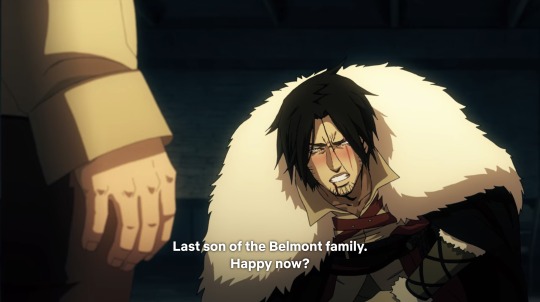
All right, truth time: The first time I watched the series, I didn’t have the subtitles on and between Armitage’s accent and the character groaning in pain, it took me a moment to register Trevor said ‘last son.’ Cause I first misheard the line as ‘bastard son.’ Which was a possibility in my head. Game of Thrones was still popular at the time this came out, so it wouldn’t have been too much of a stretch for Netflix Castlevania to try to make bank on a knock-off Jon Snow character. I mean, look at Trevor. Ragged hair, fur cloak, total Night’s Watch.
Historically, though, this still would have been a valid take on Trevor’s character. The Wallachian laws of succession, at least with the reigning family, did not abide by the feudal law of primogeniture like most western Medieval countries. So the eldest son was not necessarily guaranteed the father’s position and wealth. All the sons, even the illegitimate ones, had a shot at succeeding the father. I’m not sure if this practice extended to the lower aristocracy or even the peasantry (any sources I find are frustratingly vague), but it would surprise me if this wasn’t the case. It would be odd for one social class to have different inheritance practices than another. (Then again, this is the aristocracy...) Not to mention a lot of folktales from the area do have the theme where a father with multiple sons sets some task for the boys to prove their worth or something similar.
If this were the case, it could’ve been an interesting explanation of why Trevor was the only survivor of the massacre. Being an illegitimate child would have made him a potential target for his father’s wife if she wanted to ‘clear out’ the competition for her own sons, so it’s plausible he could have fled the house and simply wasn’t there at the time of the mob’s attack.
In all, it’s a headcanon I sometimes think about. In the video games, there’s no mention of Trevor’s parents outside of the Lords of Shadow branch of the franchise, which isn’t considered part of the canon timeline. Trevor mentions his parents only once in the series, saying he’d seen drawings of the Cross Haladie in his mother’s books and that his father once got into a fight with a Speaker. Which...fisticuffs or was this Speaker capable of Sypha levels of combat?
#castlevania#trevor belmont#belmont family#trevor belmont parents#wallachian politics and the history lesson no one asked for#Medieval Wallachia#wallachian social classes#medieval europe#lords of shadow#castlevania netflix#game of thrones#night's watch
12 notes
·
View notes
Text

— in which the newly appointed voivode emphasises that the old times have come to an end. A rewrite of the dregătorii scenes from the Romanian historical film Vlad Țepeș (1979).
word count: 3,551 words
warnings: mild references to violence
a/n: The 1979 film was one of the main driving forces behind writing Voievod in its current form. It redirected my focus towards what I wanted to explore about Vlad’s character and history. At the end of the 1970s, Romanian filmmakers completely knocked out Dracula’s vampire teeth and presented the Wallachian voivode as he was instead — tough and cruel, the project of his times, but fair. Of course, the film plays on a nationalistic note (we are tackling Ceaușescu’s regime here, after all…), but the viewer does not mind as it does not feel so blatant. And Ștefan Sileanu’s portrayal (despite the age difference between him and the figure he portrayed) was a great choice — he carries a kind of charisma that fits Vlad’s character perfectly. (This gem opens new perspectives if you are fed up with encountering numerous portrayals of Vlad as a cruel tyrant or mortal-turned-vampire, and multiple contemporary historians worked on the consults for the script to make the story accurate, so go check it out on YouTube in case you have not seen this film! It is available with English subtitles.) I have always adored these two short scenes in which Vlad gets in an open confrontation with the boyars as both moments are powerful and charged with great emotional range — I may have decided to tweak the dialogue and setting a little to make it fit into my take on Vlad’s character and life, but the scenes are so good, I could not resist including them into the story. This is my little homage to the film’s greatness while trying to tweak it into its own thing. I hope you enjoy it! ❤️️
➨ also available on AO3

August 1456, Curtea Domnească, Târgoviște, Wallachia
“Where are the dregătorii?”
Manea’s snow-white head emerges from behind one of the stone pillars.
“They come at noon, măria-ta. Such is the custom,” the man informs Vlad, his voice calm.
The words strike like flint on steel. Manea catches the sharp clench of the voivode’s jaw.
“The custom?” Vlad’s deep voice cuts through the silence of the throne hall, echoing like thunder off those empty white walls. “I called upon them hours ago! Take the guards and bring them here immediately!”
He watches as Manea snaps into a bow without saying another word and turns on his heel. The heavy doors swing shut with a resounding thud, sealing the space behind him. Silence rushes in like a tide — with that, Vlad is left alone.
The roll of parchment clenched in his calloused fingers crinkles under the pressure. He looks at it again, studying the script that unfolds pressing demands. He has read it so many times that the words must have seared into his mind by now. It anchors him, gives him something — anything — to focus on. His mind cannot grow idle. His body cannot stay still. The day ahead demands action, yet action is precisely what he is deprived of. His eyes trace the lines with the same fixation as before, but his thoughts are elsewhere, scattered.
Noon. Of course. They will come with the arrogance of believing that time itself bends to their will.
Hours have slipped by since the first light of dawn when he stormed back from his morning ride, muscles loosened and pulse alive, the wind still clinging to his skin. He devoured a hearty breakfast with the same intensity, to sate the hunger gnawing at him. His private indulgences have become the greatest form of luxury. It has been a week since he was crowned by the metropolitan, and there has been no pause since, no mercy in the march of time. Duties demand him to be everywhere, all at once. This country is a living, breathing force. He must keep pace with it — or be devoured.
But what was once a land of promise now staggers beneath the weight of neglect.
His grip tightens. The edges of the parchment press into his skin. It grounds him. Just barely so. Impatience burns through him like wildfire, igniting every vein with an aggravation that spews like venom. He paces before the throne, fervent steps threatening to erode the very stone beneath his booted feet. Movement is the only thing holding his fury shackled. Then he stops for a second, eyes drawn to the window where the sun blazes high in the sky. It mocks him.
He has been left to wait for hours, like some idiot. They think they can break him with time, humiliate him into submission. It sharpens him instead. Fools. They have no clue what is about to come.
He glances at the throne beside him and weighs the option of sitting and waiting. He decides against it. Time wasted is time lost. Purpose drives him as he walks through the archway leading to the cancelarie. With eyes wide with panic, the grămătic fumbles to his feet as soon as the door bursts open.
“Please, sit,” he sends the flustered scribe back to his seat with a wave of his hand, catching the papers and parchments the nobleman has knocked over in haste.
He would never wish to disrupt a diligent man during his work.
Besides, he has tortured him enough already. Eight years prior, when he was grappling with the magnitude of his predicament, Vlad demanded to be walked through every minute detail of the cancelarie, mapping out where each document was stored. His request was as much about understanding the court’s inner workings as it was about satisfying a childhood curiosity, a desire to explore the places he had once been barred from. Now, eight years on, a new voivode arrived, tenfold more demanding than that seventeen-year-old youth. The night after the coronation, he did not let the poor scribe leave the palace until they went through all the important documents together, each one dissected until Vlad’s knowledge of the state of affairs was as thorough as possible.
Not a single fragment of vital information will ever elude him. He will see to it.
He walks past the massive desk and puts the roll of parchment back in its place.
“Can I see the documents on our tax revenues?” he asks. “I want to see if the money serves any purpose beyond lining a few greedy pouches.”
“Of course, măria-ta. I shall have them delivered to your rooms this evening.”
“I want to see every last detail scrutinised, no matter how insignificant it may seem.”
“Certainly, măria-ta.”
“And where is the letter from the—”
The sound of footsteps multiplies in the hall. Another priority demands his attention; studies and evaluations vanish into the corners of his mind. He lunges from the working area, walks across the room and towards the throne with a speed that leaves no space for doubts. He does not spare a glance at the boyars who pour into the hall, some of them frantic and scurrying towards their seats. His eyes remain fixed ahead, only the shimmer of steel from the guards’ weapons glints in his periphery — silent but always present. Then he faces them, his eyes drilling into the richly dressed assembly before him.
“This land must advance with the speed of a decade’s progress in just one year if we are to measure up against others. And you dare come at noon? First, you chase your own comfort, and only then think of the rest?”
His hand moves on its own accord, and the index finger hovers over them in accusation. Irritation flows through him, his tone no longer contained but spilling over. He dares them to retort or challenge him. No one does — except for one. The tall and bearded one, thick with flesh, his smile curled into mockery. He sinks into his seat with deliberate slowness, choosing the one on Vlad’s right side. Albu cel Mare. The Great. First among equals still. A festering sore still rotting on this land.
Vlad does not stir. His gaze holds steady, tethered to Albu’s with a dark, almost mischievous glint, a ripple of indulgence beneath the surface. The insult hangs in the air between them, only to wither before it takes root. With a flicker of intent, he gives energy to his words and releases them without a second thought.
“Do you find this amusing?” he asks with lightness in his voice. “It is good to see you still retain your sense of humour. You will have need of it.”
In that instant, the mockery crumbles, sliding off Albu’s face.
Vlad drops onto the throne, body hitting the seat with a fluid ease. The narrow space does not allow much comfort, but he owns it still — he drapes one leg over the other, ankle perched on his knee. The sharp angles of the wood dig into his spine, but he leans back in the seat and claims its discomfort nonetheless. His thumb idly twists the thick, worn band of his father’s ring. The metal is warm against his skin, familiar, weighty. It circles slowly, a measured movement. He does not look down. He does not have to. That ring holds more than memory.
Was that perhaps a beginner’s mistake? the thought stirs in him beneath the weight of his own misjudgment. His spirit — so quick, so volatile — threatens to flare again. He tamps it down. No, he tells himself. No more of that. He can see his father in his mind, that stern face shaded with disappointment, head shaking in slow, deliberate disapproval. He recalls the words Dracul often repeated to him. Temper your fire, boy. A man who cannot rule himself is no ruler at all. But this is no error of youth or inexperience. This is calculation. Power, after all, is not a sword swung in every fit of rage, not a storm that ravages without thought. Power is restraint. It is the slow tightening of the hand before the crushing blow. To hold. To wait. Until the moment arrives. And now, the moment is here.
He knows the games the boyars play. He can play them just as well. An eye for an eye. If they choose to act like spoiled children, he will discipline them as such. Gone are the days when voivodes bowed their heads, their power nothing more than a fragile illusion borrowed from those who sat in this darkened hall. Someone should have taught them this lesson long ago. Fear, that most ancient of chains, has snapped with him.
He watches the boyars, eyes sharp, heart steady — or so he wills it to be. He has tried to approach them with measured patience, understanding well that their support is crucial, all the more now when the crown’s weight is still fresh on his brow. He knows that these times demand unity. Let the reckoning come later. For now, the country must function and the balance must hold. Yet these men take the truce offered to them for weakness, his mercy for softness.
But unlike his late father and elder brother, the young voivode has never truly excelled in the art of diplomacy. If it is war they want, he will give it to them. That is a domain in which he has honed his skills to absolute perfection.
“This country does not belong to you, dear boyars,” he speaks into the murmur with a more controlled tone. “You belong to this country, just as I am its servant. We say Ladislaus of Hungary, not Hungary of Ladislaus. Casimir of Poland, not Poland of Casimir. Were it not this way, the countries would perish with their rulers… and their nobility.”
“What happened, măria-ta?” one of the boyars asks with hardly feigned concern.
“Nothing at all,” Vlad waves his hand dismissively. “This is a typical working day. I would like us to discuss the state of affairs, see what needs to be done, and do it.”
While discontented mutterings swirl in the hall, Albu uses the moment to study the little dragon. His first surprise comes quick — he does not wear the crown. Then the memories resurface and bring clarity with them. Neither did his father. Albu’s gaze traces the golden embroidery on his clothes — all blood-red, the voivode’s colour. So this is his way of branding their memories to ensure no one dares forget whom they have placed on the throne. A grin crawls across his broad face, malicious, patronising. He lets it sit there just long enough for the sharp-eyed youth to catch it before it vanishes into the folds of his expression.
Pathetic.
In truth, he almost feels pity for Drăculea. He is merely an inexperienced young man playing at being a voivode. His every move and every display of bravado reek of desperation, yet he believes he can make them cower by sheer will alone. The arrogance of youth is so predictable, so easy to manipulate. Let him play his little game, let him believe he has control. Soon enough, he will be exactly where Albu needs him.
He recalls the words he shared with his comrades after they elected Drăculea. He is like a foal harnessed for the first time — kicking, neighing, getting up on two legs. He will go at it for a while. Then he will get used to the harness, the carriage, and the coachman. No one wants him here, but a young spirit is pliable, mouldable… He will pull the carriage. He will answer to the whip.
Oh, the fool has no clue what is about to come.
Another head falls, easily.
“You have seen many voivodes pass through these halls since my grandfather Mircea died. Tell me, boyars, how many now?” Vlad rises to his feet after he lets them simmer in their useless complaints long enough.
As he walks past the seats with hands behind his back, various answers come to him.
“Six…”
“Seven? Eight?”
“Must be more, măria-ta. Ten.”
The hall becomes a tomb choked in stillness as the voivode ponders their answers. He lets it stretch further. Every breath feels stolen. He can feel the boyars squirm under the weight of it, eyes flicking nervously between one another. No one dares predict what comes next. And there he stands, watching, waiting, like a goshawk stalking its prey.
Some of the boyars catch the gleam of viciousness flicker in the voivode’s smile, white teeth slashing like a blade under the shadow of his black moustache. He holds each man’s glance just a moment too long. A few meet his stare, unyielding, eyes locked in defiance. Most falter. Their gaze slips away from the venomous green of his eyes as though the weight of the silent accusation burns too hot to bear.
“Not even you can remember,” he says only when the tension in the room reaches its peak. “You have set them against one another. You have urged them to look for the costly help abroad!”
Half a dozen pairs of eyes draw toward him, their surprise threading beneath their skin like an unwelcome chill. His tone is more accusatory and biting than they previously expected. His voice slices through the air with a sharpness they never foresaw.
They have draped him in velvet, set him in the seat of power, placed the crown upon his brow. And yet here he stands — daring, no less — throwing their courtesy back in their faces? Is this how he repays them, for the splendour they have so generously handed him?
But Vlad resumes his steps, and familiar words seep from his lips — whispers from a grave thick with the weight of years, of life buried but not forgotten. Each man in the hall recognises them. “‘Io Mircea, the great voievod and domn of God’s mercy, and the gift of God, ruling and reigning over all the land of Ungrovlahia and the parts above the mountains, Duke of the Tartar parts and of Amlaș and Făgăraș, and the ruler of the Banat of Severin, and on both sides throughout Podunavia, even to the great sea, and ruler of Dârstor’s fortress.’ What happened to his legacy? Where are those territories above the mountains? And Amlaș and Făgăraș? Where is the great sea?
“Not even forty years have passed since he was laid to his grave, and the voivodes have become the vassals of Hungary and tributaries to the Turks. Servants of two masters! The blood of our ancestors has soaked this soil, yet you,” his gaze rakes over the boyars, “you would see it sold for a few more years of luxury. Look at the ruin your reckless strife has brought upon this land!”
The weight of his words settles over the dregătorii. Brows knit, hands tighten in silent rage, yet he does not retreat. His accusations scatter like lightning through a storm and warp the air between them. The councilmen hardly flinch, but behind their stillness lies the birth of something that begins to writhe and breathe. It coils in the dark, festering, preparing to strike. It feeds on every small display of insult, on the thin line between respect and humiliation he has now crossed.
The silence expands, breathless, waiting for the crack. Albu sees the tightness in the young voivode’s clenched fist, the rigid set of his jaw. He rises, each step like a move on the chessboard that already forecasts victory. He stands close, close enough to feel the heat of the youth’s fury. A faint smile twists at Albu’s lips.
“Măria-ta, but did you not come to this land with the same intent? To kill the voivode and take his place?” his voice comes low, smooth as a dagger sliding between ribs.
The fire in Vlad’s eyes flickers. “This country is a shadow of what it used to be. When I crossed the mountains, I did not come to claim a country but a shadow. I did not come to kill a voivode but to kill the shadow of a shadow—”
“The voivodes were feeble—” one of the dregătorii begins to speak with caution but falters mid-sentence, the breath caught in his throat.
“You were the ones who ruled after Mircea’s death! You were deposing and enthroning voivodes at your whim!” Vlad’s voice cracks like a whip, reverberating through the hall and crashing into the boyar’s weathered face. “They did not know how to stop you while there was still time.”
“Then perhaps you should do it, măria-ta.”
The mockery douses the flames burning in Vlad’s chest. The outrage in his eyes flickers and dims until only the smoke of what was remains. His gaze shifts and pauses on Albu, sizing him up with a keenness that lingers in the silence. Remains of his former glory — when calling him The Great carried weight beyond the bitter aftertaste of faded power — persist in his bearing, shoulders thrust back with pride. But time has sunk its teeth into him, leaving only fragments of the man he must have been. Sharpness has given way to the fat and sagging flesh of age, eyes sunken deep in their sockets beneath the wrinkles. Sweat glistens on his ample forehead and betrays a weakness he tries to hide.
Vlad’s response is one Albu hardly expects. A smile stretches across his lips, reckless and unsettling in its excess, too full of mirth for the moment. It carves shallow ridges into his youthful cheeks.
“No. I will not judge you now,” Vlad slips into a near whisper. “Too many heads would fall.”
After that, he offers the boyar nothing, not even the weight of a lingering gaze. Vlad turns his body away from Albu, dismissing the man with indifference, and strides toward the throne. The fabric of his coat sweeps in time with the motion. He lets himself melt into the embrace of the seat, the wood groaning softly beneath him. The pause is barely there, marked only by the subtle lift of his chest. Then, without delay, he squares his shoulders, his eyes once more locking onto the men in front of him, hard and unreadable, as if the brief flicker of humanness never existed.
“I am asking one thing of you. You have brought this land to its knees. You shall help me lift it where it should be.”
“Let us do that, măria-ta. What are your orders?”
“A new administration. Armașia. To ensure the fulfilment of the royal orders.”
“Anything else, măria-ta?”
The taste of Vlad’s following words — bitter and metallic, like blood pooling behind clenched teeth — haunts him. “I wish to allocate money for the construction of a church in honour of my cousin, the illustrious Vladislav Voievod. It shall be built near the site of his final moments in Târgșor.”
To offer praise to a man he despised, a man whose death brought him the kind of satisfaction only a dog gets from tearing apart its prey, feels like desecrating his own tongue. He has been a poor liar his whole life — that much he has always known, and these lies come slow, like jagged rocks grinding their way up his throat. The memory of Vladislav’s throat opening under his blade flashes across his mind, of blood pouring in cataracts all over him.
The boyars watch, suspicious of and unmoved by his fumbling words. They, too, are liars. Their faces bear masks as thin and brittle as his own, a court of men circling lies like vultures. He tastes the bitterness again, lingering, the way the stench of blood lingers long after a wound is sealed.
Vlad’s eyes sweep the hall, finding nothing but the polished glint of half-hidden smiles and the dull gleam of contempt. The air is heavy, too thick to breathe, weighed down by the scent of damp stone and sweat.
“That will be all for today.”
“And who will have the honour of being the armaș?”
“You will learn in due time.”
His words are final, immutable. A single courteous nod of his head is enough. The dregătorii rise from their seats, their movements stiff. Beneath their robes rises a rush of hidden breath, the quiet release of men delivered from an unseen noose. They walk towards the grand doors, their backs straight yet trembling, sensing that the shadow behind them stretches farther than the room itself.
On the steps leading out of the palace, a rough pair of hands grab the side of Albu’s coat. “This is not a foal like you said. This is a wild horse. If we let him, he will wreck the harness and the carriage.”
Albu straightens his coat, brushes off the hands as though it were a stain. He stands still on the steps, the sun’s light beginning to cast shadows over the palace’s walls. No, the man within those walls is not the eager young pretender they thought they would bring to heel. Power, it seems, has seeped into him faster than he thought. How long before this youth, who owes everything to them, believes he owes nothing?
“A wild horse, indeed,” Albu pats the cheek of the concerned nobleman and walks away.

“Novus rex, nova lex” is a Latin saying that translates as “new king, new law”. We could also easily apply something along the lines of “new sheriff in town”. There couldn’t possibly be anything more suitable for a man who stormed in and turned all the previous customs upside-down.
I purposefully included a brief peek into the world of the voivodal chancellery as this place used to work almost like a separate universe in its own right. While a new voivode sooner or later replaced the previously serving councilmen with his own people chosen by his own set of preferences, men working in the chancellery (which was usually divided into two main workspaces — one for Old Chruch Slavonic and the other for Latin) were “inherited” and remained in their positions. They were learned people who knew foreign languages and writing standards of the day, and so their skills were valued. In this work, I mention a grămătic, a title used for a secretary or scribe of the chancellery. (There were around 4-5 grămătici working in Vlad Dracula’s chancellery.) Their supervisor, the head of the voivodal chancellery, was called a mare logofăt. The logofăt was a member of the voivode’s council (it was, in fact, one of the most prominent positions within the sfatul) and even had his own “deputy”. I am certain there will be more mentions of and glimpses into the Cancelarie Domnească in the future, but in case you find the topic interesting and want to learn more about the processes and workings of this place, I highly recommend checking out this video by Corpus Draculianum.
Becoming a Wallachian voivode was no simple feat. The process required two crucial steps. The Sfatul Domnesc (Princely Council) played a significant role in selecting the voivode as the boyars in this council often had influence over the succession, and it was common for them to elect or approve the ruler. After the official approval, the candidate could be crowned by the head of the Orthodox Church, the Metropolitan of Wallachia. However, the voivode’s position was never fully secure after these formal steps — although the voivode held the title of supreme ruler in theory, the boyars often wielded more actual power in Wallachian society. Their control over land, military forces, political alliances, and influence within the Sfatul Domnesc made them a formidable force capable of dictating or challenging any ruler’s authority. This power imbalance and the power to elect or remove rulers often resulted in voivodes being disposed of when they started to become inconvenient. The boyars’ preference? More compliant and passive voivodes.
#vlad dracula#vlad drăculea#vlad tepes#vlad ţepeş#vlad the impaler#manea udriște#albu cel mare#historical fiction
7 notes
·
View notes
Text
The Horned Serpent
So before I get started on this one, I have a couple of things to get out of the way. First, I will be using she/her pronouns for the Horned Serpent; this is just because UPG and because I'm used to it. I know someone else who venerates/worships the Horned Serpent, uses they/them pronouns for them, and considers them to be beyond gender / present as whatever gender they feel like. Second, I will be focusing on my interpretation of her on the Gundestrup Cauldron, in part because there's really not a lot of literature on her, even when you include works that specifically analyze Cernunnos' depictions. Third (and related), I will be using the National Museum of Denmark's estimate as to when/where the Gundestrup Cauldron was made, which is roughly in the Danubian or Wallachian Plain(s) around 150 BCE to 1 CE (link).
So first a little historical & cultural context. This area, as far as culture groups, would have been a heck of a melting pot, between the Dacians and Thracians that already lived there, the Scythians coming in and also living near by, the Gauls that moved in around the 300s-200s, the Greeks who came up and started establishing colonies along the Black Sea in the 300s, and the Romans, encroaching on everyone's business around the time the Cauldron was built. A pretty solid primer on the history of the region is A Companion to Ancient Thrace, published by Wiley Blackwell.
So I'm gonna try to make sense but it might be a little disorganized going forward. Anyway, onto the actual thoughts & stuff. So anyone who's taken even a passing glance at Cernunnos is well aware of the Horned Serpent, since she is present in basically every ancient art you can find with him. On the Gundestrup Cauldron, she appears three times, all on the interior panels. One is at the Hero's heel, who's holding the wheel; a second is at the end of a line of heroic riders, which seems to be a Thracian horseman motif; and of course the famous Cernunnos panel. In Thracian Tales of the Gundestrup Cauldron, published by Najade Press, Jan Best presents an interpretation of the interior panels as a story, and assumes that Cernunnos is singing in his famous panel, specifically about the secrets of immortality, a concept which was very popular at the time. I agree with this and I also assume that the depiction of Taranis / the wheel god is that he is also singing, and if he is singing then the lions and griffins - both predators associated with kingship (griffins were protectors of the pharaoh, and also decorated certain tombs out in ancient Persia), then the action of passing off the Wheel must have symbolic meaning, such as being handed the Wheel of Heaven.
The Gundestrup Cauldron's exterior also has very clear influence from the Scythians, you can almost 1:1 map the gods based on Herodotus's retelling of the Pontic stories. I believe there are also thematic parallels going on here on the Wheel God panel, featuring a new god/king being given the symbol of his domain. Wikipedia actually has some relatively thorough articles on Scythian religion as well as the genealogical myth specifically, which is the myth that I personally associate with the wheel-giving panel. As well, the animals in this panel don't appear to be particularly concerned with attacking anyone - if anything, the griffins and lionesses are slightly tilted from one to the next, which makes me think it's more likely that they are dancing, especially if the human/divine subjects are singing, especially if the human with the helmet is receiving a high honor, potentially his rank amongst the gods. In this panel, she is just at the hero's feet, not really joining the parade if the animals, but clearly not ready to attack either, but her attention does seem to be drawn towards the hero.
The final panel she is on is the panel featuring the nine soldiers and the heroized dead, represented by the "Thracian horseman" motif. After Alexander the Great and his penchant for having statues of himself be on horseback, it became popular for wealthy men and nobles to depict themselves riding horseback to a goddess or sacred tree (unfortunately my best source discussing this in English is also not great and he comes up with some..... questionable theories), but the popularity seems to have blown up to the point where even deities such as Zeus were depicted on horseback in a similar manner. There are also mentions in a few other sources that the Thracians believed in the ability for people to essentially become immortal after death. Unfortunately, I'm having trouble sorting out my notes and this essay has been nagging me for weeks now.
Anyway, I interpret this panel as what is expected to happen to us after we die - the "ordinary", so to speak, are lead to a deity, likely to be reincarnated (this is honestly just a guess on my part largely due to the popularity of that in Greece for ever, and Grecian influence was in full swing by the time the Cauldron was made), meanwhile the "extraordinary" are lead by the Horned Serpent.
This is where I tie all three together to my upg/theology: The Horned Serpent is a friend and ally to Cernunnos. He teaches the secrets of life after death to those who will listen. The Horned Serpent is by his side during his teaching, and when we die, if we have proven ourselves worthy during life, she guides us through the trials of the afterlife. If we succeed in these trials, we are awarded with apotheosis - becoming a god or godlike - and she stands by our side as we earn this prize.


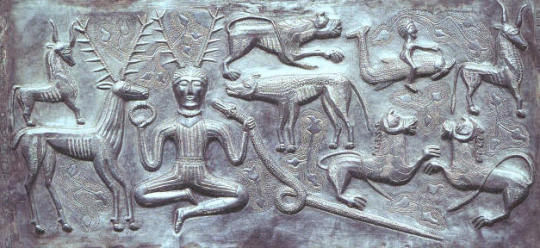
@musingmelsuinesmelancholy sorry it took me so long x.x & I hope this makes sense!
#cernunnos#thracian polytheism#gaulish polytheism#dacian polytheism#scythian polytheism#the horned serpent#balkan paganism#celtic paganism#paganism
23 notes
·
View notes
Text
Vampires, History and You
DRAGAN I (12th century)
Blood-sucker from the Second Bulgarian Empie credited with being the first vampire. Claims of his exact birth, life and undeath are generally disputed and little proof of him even existing has been found. He is purported to have been of noble blood though as result of an affair, dying early of sickness and ressurecting as the original vampiric spawn for reasons unknown.
Some say he simply faded away or that he lives on to this day in form of the monsters of modern myth.

VLADISLAV III (1431-1476)
Contrary to popular belief, the Voivode of Wallachia, Vlad "The Impaler" was NOT A VAMPIRE. However due to his sheer bloodlust and sadism he was a magnet for them. Many high-ranking Wallachian officials at the time were vampires fully on board with his ideas who wholeheartedly supported his plundering and impaling of the Transylvanian Saxons.
He was slain by his own troops as they had mistaken him for a Turk.

ELIZABETH BATHORY DE ESCED (1560-1614)
A Hungarian countess moonlighting as a serial killer. Elizabeth was of the superstitious belief that bathing in blood would keep her youth intact, as her vampirism started taking a toll on her exterior, causing her to kill over 600 young maidens.
In early 1611 she was detained and imprisoned in Csejte castle for the remainder of her life where the deprivation of blood caused her to die four years later at the age of 54.

GRIGORI YEFIMOVICH RASPUTIN (1792-?)
Hired as a faith healer by the Nicholas II's son, the Siberian strannik Grigori Rasputi was not only a skilled manipulator and medical practitioner but also a possibly immortal vampire. Despite having a religious awakening after a pilgrimage in 1897 he was an opulent man enjoying all the pleasures of food, strong drink and any woman that would have him (which were quite many).
Following multiple failed assasination attemps Rasputin was thought to have been killed by a group of noblemen. Their first attempt to poison him with cyanide-laced cake and wine failed as his physiology withstood the poison, he was shot in the forehead and his corpse was diposed in the Malaya Nevka River.
However current paranormal scholars believe he is still alive and well, living in the shadows.

"JACK THE RIPPER" (Active 1888)
Another vampire serial killer is said to have haunted Victorian England. Although not even the name "Jack the Ripper" is for certain the methods of murder and removal of internal organs point to the suspect or suspects being of vampiric nature.
Never identified.

PETER KÜRTEN (1883-1931)
Maybe not one of the deadliest but probably most heinous vamprire serial killers, Peter Kürten was a man who truly earned his titles. Such charming nicknames as "The Düsseldorf Monster" and "The King of Sexual Perverts". Kürten went on a spree of arsons, homicides and molestations in the year 1929 before he was apprehended.
Peter was executed via beheading in 1931 on accounts of nine cases of murder and seven cases of attempted murder. His head was split in two (possibly to avoid biting post-decapitation) and mummified. In the late 1940s the head was moved to the US and now resides in Wisconsin.

KAREN SABNOCK (1912-Present)
The matriarch of a vampire clan which migrated to America after years of vampires confining themselves to Europe. At her arrival in the 1950s she fell in love with the suburban lifestyle that had been established post war. Her clan has grown strong over the years acting as a haven for vampirekind in the American Northeast...well as long as they conform to the standards of it.
She governs the coven as a sort of omnipotent wine aunt and is currently on the lookout for another vampiric bride, having set her eyes on the human wife of one of her clansmen.

BILLIAM FREDERICK SUBURBS (1914-2012)
A prominent social figure and progenitor of the Karen's suburban vampire community. He was the classic sitcom family man father of three living with his wife...until she killed him and their children after discovering they had killed a man to drink his blood in front of her.
Since his demise the clan has been on the hunt for his spouse Marsha.

#the third eye#webcomic#will wood#vampire culture#vampire#lore#this will only be slightly important in the future#flavor text
8 notes
·
View notes
Text
CD SHORTS: Did Vlad the Impaler kill people with his own hands?
Vlad the Impaler has the reputation of being "the deadliest ruler in Romanian history". But how many people did the voivode kill with his own hand? If we disregard the slanderous propaganda, the only relatively pertinent report on this subject is the letter of Bishop Giovanni Rangone: After his release from arrest, Vlad allegedly dismembered Ottoman prisoners in the 1476 Bosnian campaign, with his own hands, and impaled the resulting parts on stakes. He explained this act with the words: "seeing this, the Turks will flee". Twelve years earlier, the King of Hungary had accused Țepeș of treason, claiming that he had sided with the Ottomans after fighting them for more than half a year. These accusations led to the voivode's arrest in November 1462. In addition to the benefits of psychological warfare, through these personal acts, the new candidate for the Wallachian throne intended to prove his loyalty, taking advantage of his fame as Dracula and Țepeș, both nicknames he had during his lifetime. For more details about this little-known campaign and the letter in question:
youtube
#romania#history#vlad the impaler#wallachia#vlad tepes#youtube#vlad dracula#corpus draculianum#dracula#Youtube
10 notes
·
View notes
Note
What subgroup are the Maximoff’s most likely to come from? We know that Magda’s Sinti but to my knowledge nothing has been confirmed about them (I personally think that they’re Kalderash but I was wondering what you thought about it)
Kalderash is a good guess. It makes sense, based on the region they're from. Matéo Maximoff-- the real person-- was Kalderash on his father's side, so it's also the most appropriate choice based on their name.
My personal assumption is that the Maximoff family are descended, at least in part, from Wallachian slaves. It seems most likely, based on Transia's location and history, and Quicksilver: No Surrender makes specific references to that instution of slavery. If that is the case, then they are probably part of a Vlax or Kalderash grouping, but that's a very broad category.
My understanding is that the Romani population in the Balkans and Central Europe is actually very diverse, with a really wide assortment of different dialects and identities. Without a more informed depiction of the Maximoff family and their immediate community, I really just don't even know where to start. There is, apparently, a large population of Muslim Romani in Transia. Those people would likely be described as Xoroxane.
14 notes
·
View notes